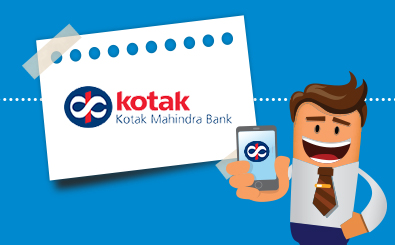Ecommerce 
- home
- /
- our services
- /
- Strategy
- /
- Ecommerce
Ecommerce
Why you should be starting to sell online and how
The ability to sell online has become a critical part of most business's strategies:
When you are considering starting to sell online you also have to look at what your competitors are doing online. You should never copy what your competitors are doing but you can use it as a guide and then even improve on what they offer. So getting started means doing some research so that you are best informed and ready to move forward.
eCommerce Strategy and Plan
Having a plan can help save you from making mistakes and getting off target from your original objectives. A plan does not have to be long and complex. Consider the key issues:
-
Mission - what is your business's value to your customers?
-
Strategy - how will you go about making the business a success?
-
Technology - choose the technology to support and grow with your business
-
Stakeholders - identify the partners that will help move the business forward
-
Engagement - get moving then review and improve as you go
-
Strategy Overview
-
A good business plan, whether for eCommerce or any business should cover:
-
Business & Personal Aims - what is your business's mission? What value are you seeking to provide?
-
Business Objectives - what do you want to achieve?
-
Business Model - how will you achieve those objectives?
-
Tactical Deployment - what do you need to do to achieve those goals?
-
Marketing Requirements and Goals - how will you reach your target customers?
-
Content Gathering and Management - Who will do this and how?
-
Fulfilment and Logistics - Managing your inventory and getting it to customers
-
Financial Management and Payments - including security management
-
Social Media - strategies to connect with your customers
-
Platform & Technology - what requirements does your business have to achieve the goals above?
-
Mobile Commerce
-
Maintenance & Management
Strategy Tasks
-
Make sure you know your market - it's best to check in with target customers throughout the start-up process to ensure your strategy resonates with the value you are seeking to provide.
-
Multi/Omni-channel - What is important to your customers? Physical presence? eBay? Clicks and mortar?
-
Integrate the shopping experience - customers what to feel they are dealing with you so all avenues through to a final sale should feel integrated from their perspective.
-
How you will deal with
-
Content - creating it and keeping it up to date
-
Pricing & inventory - regular updates and fresh inventory
-
Logistics - getting your products to your customers
-
Service & support - how do your customers get help from?
-
Payment & refund/returns - what will be your policy?
-
Security - how will you manage credit card and payment security?
-
Develop an easy-to-use purchase process - minimise clicks and concerns for your customers
-
Consider localisation requirements - language requirements or multi-currency
-
Consider customer relationship management and personalisation - how will you get and stay connected with your customers?
-
Make sure that you select a scalable platform or solution - will your technology grow as you do?
-
Make sure you have a team in place - either staff or support from vendors, associates, partners or family?
-
Marketing campaigns and requirements - how will you market your business? Online only? Google Ad-words?
Business Issues
-
What is your business model - The business model is all important and how you establish you business may depend on the model. Will you sell to consumers, to businesses, to both. Will you build a marketplace where lots of businesses can sell together online.
-
What kind of resources will you need - Every business needs to budget for resources and you need to ensure that you have the capital to get your venture moving.
-
What is the demographic focus - Who will be your primary buyer? Knowing this can help you setup the online assets to be more attractive to the demographic that you are targeting.
-
What expertise is available - Self managed and when you need assistance.
-
Domain name/s - your brand and your domain name are linked together for you business. Choose a domain name that represents your brand and is not being used in other countries.
Technology Issues
-
Business email addresses - helps to develop trust with your customers
-
SSL Certificate (recommended if you accept credit cards) - necessary for security and trust
-
Merchant account and/or PayPal - always collect payments safely and check PCI DSS Compliance.
-
Which pricing model - relates to the business model and the demographic
-
Shipping and logistics - shipping costs can be a margin eater. In most situations you will be able to add shipping cost to the total pice. But shipping can be a competitive advantage.
-
Design and user experience - make it easy for the customer to browse and buy on any device
-
Requirements for custom development - try to avoid having any custom developement done as this will potentially cause you pain when you need to upgrade or maintain the website.
-
Mobile and tablets - work on any device
-
Search Engine Optimisation (SEO) - SEO can be more costly than traditional marketing so ensure that you have tools and a strategy to get the most out of the technology
-
Content Marketing - good SEO and good results all start with great content. Remember Content is King when it comes to the web.
-
Search Engine Marketing (SEM) - digital marketing is all about promoting your business on the web and bringing customers to your website.
-
Web analytics - once you are selling online you need to be able to track who has been to your website and what they have done.
-
Web-services for integratio
are you ready to





